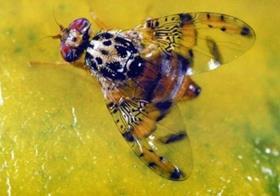
Western Australia’s produce industry could benefit from a new pilot programme, aimed at eradicating Mediterranean fruit fly (Medfly).
Co-funded by Horticulture Australia Limited (HAL) and the Department of Agriculture & Food Western Australia, the programme will be base around the expanding Carnarvon horticulture precinct in the state’s southwest.
Improvements will be made to the precinct’s current baiting scheme, while more than 5m sterile male Medflies will also be introduced into the area.
If the programme proves successful, HAL’s research and development general manager, David Moore, said ground costs could be slashed, while new market access opportunities could also open up internationally.
“The horticulture sector spends more than A$10m (US$9.4m) annually on Medfly control, a cost that will only increase as relatively cheap organophosphate insecticides are withdrawn from use,” Moore explained. “The sterile insect technique is a proven tool for fruit fly suppression and eradication worldwide, and was successfully used to eradicate Medfly from Carnarvon in the 1980s.”
Carnarvon is located 1,000km from Perth and is surrounded by arid lands, with its isolation making it the ideal location for a regulatory-based programme, according to Moore.
“The anticipated outcome of this project is a fruit fly free area in Carnarvon leading to a reduction in the use of pesticides, increased market access and an expansion in the production of high value fruit fly susceptible crops,” Moore said. “The project will be used as a pilot for developing fruit fly free areas, or areas of low pest prevalence, across Western Australia.”



